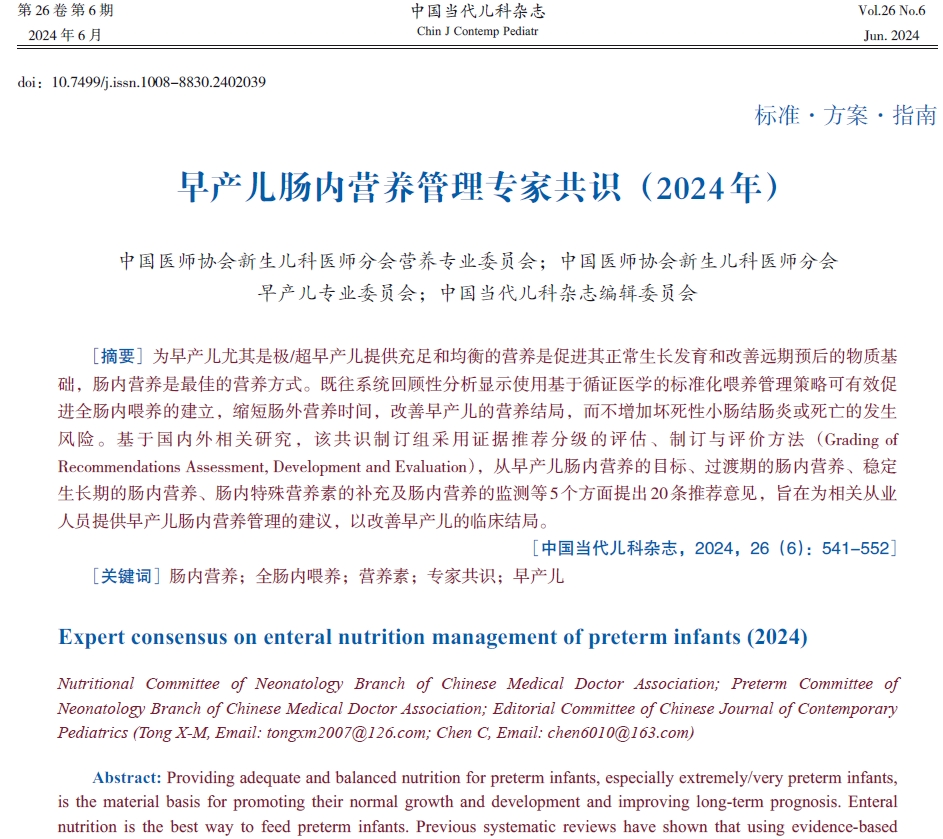 PDF(721 KB)
PDF(721 KB)


Expert consensus on enteral nutrition management of preterm infants (2024)
Nutritional Committee of Neonatology Branch of Chinese Medical Doctor Association; Preterm Committee of Neonatology Branch of Chinese Medical Doctor Association; Editorial Committee of Chinese Journal of Contemporary Pediatrics
Chinese Journal of Contemporary Pediatrics ›› 2024, Vol. 26 ›› Issue (6) : 541-552.
 PDF(721 KB)
PDF(721 KB)
 PDF(721 KB)
PDF(721 KB)
Expert consensus on enteral nutrition management of preterm infants (2024)

Enteral nutrition / Total enteral feeding / Nutrient / Expert consensus / Preterm infant